From teaching and management practices, teachers proactively suggest solutions to soon realize the Resolution in educational life, creating clear changes and sustainable effectiveness.
Synchronous and practical solutions
Mr. Dang Quoc An - Principal of Tran Nhan Tong High School (Mao Khe, Quang Ninh ) said that in order for Resolution 71 to come into life soon and be effective, it requires the participation of synchronous, drastic and practical solutions from the Central to the local level, from the management agency to each educational institution. At the same time, concretize the Resolution with a clear and synchronous system of policies and laws.
First of all, review, amend, and promulgate new laws, decrees, and circulars to fully institutionalize key contents, especially financial mechanisms for non-public education, educational autonomy associated with accountability, specific mechanisms to attract talent, teacher salary reform, etc. This will be a transparent and solid legal corridor, ensuring the smooth and effective implementation of the Resolution.
At the same time, it is necessary to increase budget investment in parallel with promoting the socialization of education. Public budget must be allocated effectively, focusing on breakthroughs. The State needs to issue mechanisms to encourage businesses and individuals to invest in education through preferential credit policies, investment guarantees, and public-private partnerships.
In particular, support for non-profit private schools to access preferential loans, clean land, and cheap public services. These solutions will contribute to solving the problem of resource shortages, while creating incentives to promote investment in quality education.
It is also necessary to promote decentralization and give real autonomy; give more power to educational institutions in terms of enrollment, recruitment, program development, international cooperation, and finance. At the same time, establish a transparent monitoring and inspection mechanism associated with accountability. This stimulates initiative and creativity at each educational institution, maximizing the resources of each locality.
Develop and improve the quality of the teaching staff through a roadmap for salary and welfare reform; build a flexible, regular training system through online and lifelong learning; improve the assessment and classification of teachers based on their capacity and actual results.
Promoting digital transformation and innovation in educational technology is also an important solution to soon bring Resolution 71 into life. Accordingly, completing technology infrastructure for schools, promoting digital transformation, building a national lifelong learning platform associated with a shared open science repository. This will increase teaching and learning efficiency, personalize learning, and narrow regional gaps.
In particular, it is necessary to promote communication work to create social consensus. The content, goals and benefits of Resolution 71 must be clearly conveyed to each citizen, teacher, student and parent. When fully aware, society will form trust and unity of action, thereby promoting the progress of implementing the Resolution quickly and effectively.
Also giving solutions, Mr. Tran Trung Hieu - History teacher, Phan Boi Chau High School for the Gifted ( Nghe An ) emphasized 3 contents:
Firstly, the Ministry of Education and Training needs to submit to the National Assembly amendments and supplements to a number of related laws, including the Law on Education, to comply with the new requirements set forth in the Resolution.
Second, the Government needs to quickly concretize the content of the Resolution into specific, feasible policies, linked with a roadmap and specific monitoring mechanisms.
Third, allocating sufficient resources for implementation is key. The government needs to ensure the budget from the 2025-2026 school year so that the policy can be put into practice soon and bring about practical results.
Mr. Ho Tuan Anh - Principal of Quynh Phuong Secondary School (Nghe An) commented that Resolution 71 was born right at the time of rapid and strong transformation of the country when implementing two-level local government. Together with the Law on Teachers, the Resolution is expected to breathe new life and bring excitement to the teaching staff.
In order for Resolution 71 to come into effect soon, Mr. Ho Tuan Anh said that first of all, there needs to be a breakthrough in management thinking. In fact, many guiding viewpoints in the Resolution have been put forward in previous Resolutions of the Party. However, when put into practice, the education sector still faces many difficulties and challenges.
In terms of management, general education institutions currently have too little authority, so they are passive and wait. To effectively implement Resolution 71 in the context of two-level local government, it is necessary to increase the autonomy and self-responsibility of educational institutions even more.
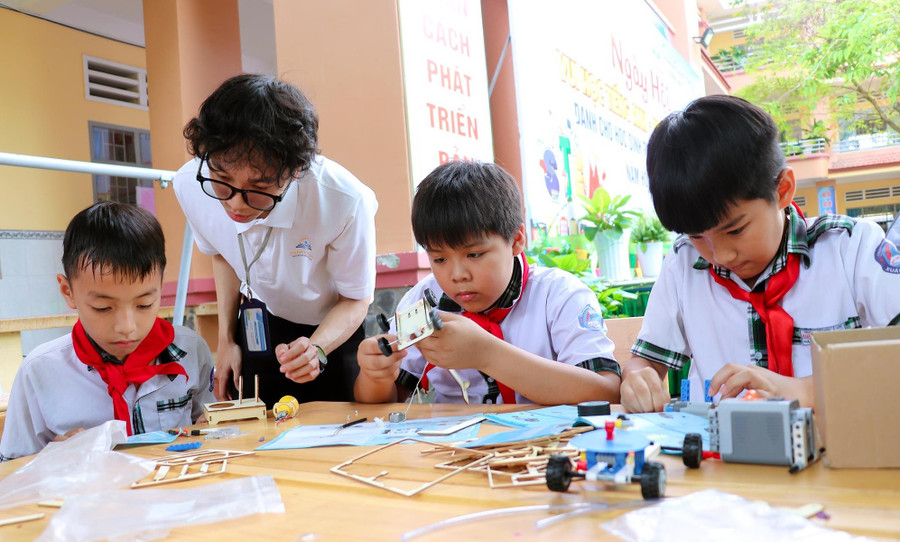
5 key factors to raise the status of Vietnamese education
By 2045, Vietnam will have a modern, equitable and high-quality national education system, ranked among the top 20 countries in the world. This is a notable goal set out in Resolution 71. Ms. Nguyen Thi Huong - General Director of Phenikaa Inter-level School said that this is a goal that demonstrates the strategy, aspiration and high determination of the Party, State and Government to raise the position of Vietnamese education in the region and the world.
Sharing some difficulties and barriers in the process of implementing the above goals, Ms. Nguyen Thi Huong gave some personal opinions as follows:
Firstly, the team of managers and teachers is still limited in professional capacity, not meeting the requirements of standardization in management and teaching, especially in aspects such as understanding of programs, educational methods and the ability to integrate technology.
Second, the quality of education between regions still varies in terms of staff quality, student capacity, intellectual level and people's living standards. Educating the younger generation is not only the responsibility of teachers and schools, but also requires close coordination between parents and the community. To narrow the gap in awareness and socio-economic development between regions requires a lot of effort and time. In addition, in some places, social psychology and educational management thinking are still heavily administrative, hindering innovation.
Third, there is a lack of consistency in policies, training programs and quality assessment. Determining the goals of educational rankings at the international level should be based on guidelines and criteria set by international assessment organizations.
To date, units have achieved international accreditation/ranking at the university, high school, and field-based training program levels. Therefore, synchronizing these standards across the entire national education system is a challenging goal.
Finally, rapid technological change poses challenges in updating curricula, methods and digital competencies.
To realize the goals set out in Resolution 71, Ms. Nguyen Thi Huong emphasized 5 key factors: Innovating educational management thinking in an open, flexible, and integrated direction; developing a team of high-quality teachers with a spirit of innovation and the ability to apply technology; increasing investment and socialization of education, including creating conditions for non-public schools to contribute to the Government's common goals; ensuring fairness in access to education, especially for students in disadvantaged areas; applying technology and comprehensive digital transformation in education.
“We support the education development policies of the Party and Government and will do our best to contribute to the common goal of the nation. The school is committed to building a comprehensive educational ecosystem, creating a solid foundation from preschool to high school, continuing the university education system; constantly innovating, improving the quality of teaching and educating students to develop comprehensively, integrate internationally - contributing to the goal of bringing Vietnamese education to international standards by 2045”, Ms. Nguyen Thi Huong affirmed.
“The most important solution is to change the mindset and way of working from management levels to the grassroots, shifting from administration to service, from control to support, from command to facilitation. Only when leaders at all levels are determined to implement, teachers, students, and the whole society clearly understand their roles and rights and join hands, can Resolution 71 truly create a breakthrough in education and training as the set goal,” said Mr. Dang Quoc An.
Source: https://giaoducthoidai.vn/nghi-quyet-71-nqtw-doi-moi-tu-tu-duy-den-hanh-dong-post748864.html











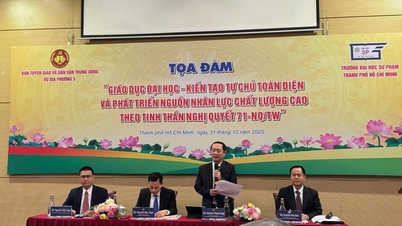

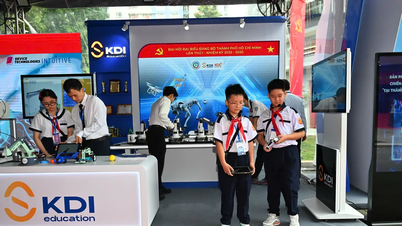

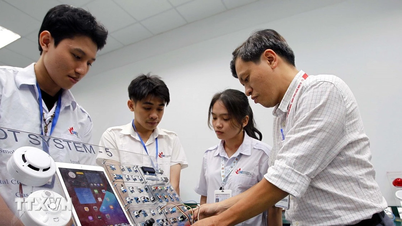







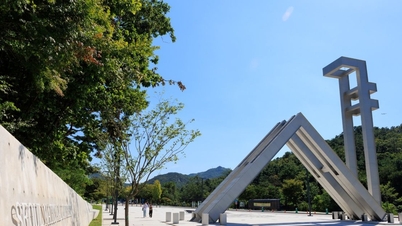




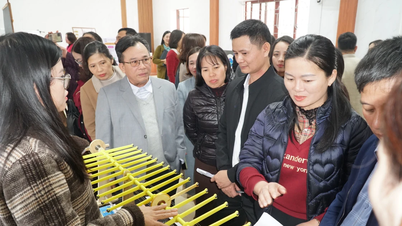





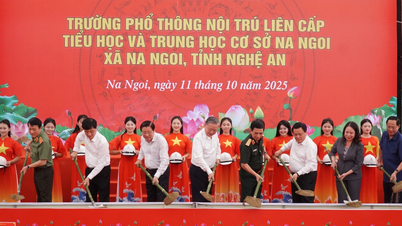





![[Photo] Da Nang: Hundreds of people join hands to clean up a vital tourist route after storm No. 13](https://vphoto.vietnam.vn/thumb/1200x675/vietnam/resource/IMAGE/2025/11/07/1762491638903_image-3-1353-jpg.webp)
































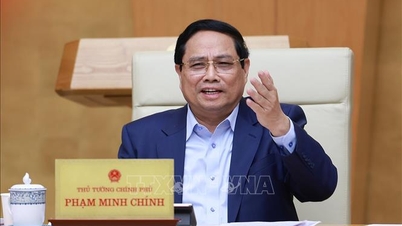

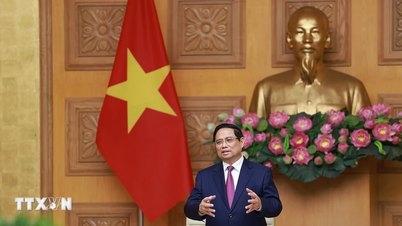

















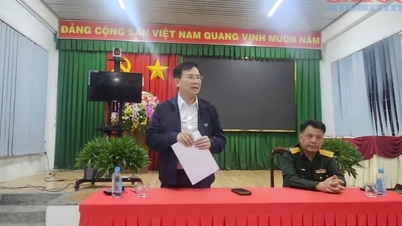


















Comment (0)